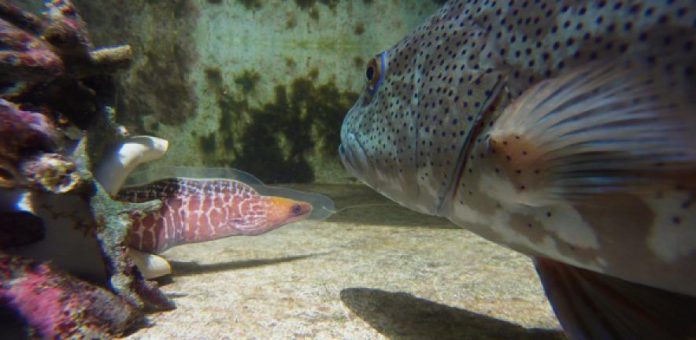Coral trout have been proven to have an ability to collaborate with each other and with another species in a food-specific task that rivals the same ability as seen in chimpanzees. Alexander Vail, a Gates Scholar from the University of Cambridge’s Department of Zoology, and colleagues are the first to demonstrate that small-brained cold-blooded animals have some cognitive abilities that are equal to or superior to apes.
Coral trout in the wild will engage the assistance of moray eels to force prey out of hiding places in coral. The fish use distinctive head shakes and headstands that aim the eel toward the hiding prey. The eel either scares the prey out of its hiding place and eats the prey or leaves the prey for the coral trout. Interspecies communication and collaboration are rare in animals.
The researchers prepared a testing area similar to a coral reef with an artificial eel that was either a collaborator or just swam away. The scientists were interested in comparing the rates of learning about collaboration in fish to the rates of collaboration in chimpanzees that they had previously established. The fish were slower to learn on the first day of testing. In the subsequent two weeks of testing the fish learned to collaborate at an 83 percent rate. The rate of collaboration is similar to that seen in chimpanzees and humans.
The researchers note that complex behavior does not indicate a complex mind and that the chemical basis for collaboration in fish is unknown. One cannot suggest that the similarity in behavior between coral trout and chimpanzees has a common origin in the distant past. The behavior may be the result of the development of similar behaviors in different species through different processes in an established evolutionary process called convergence.















